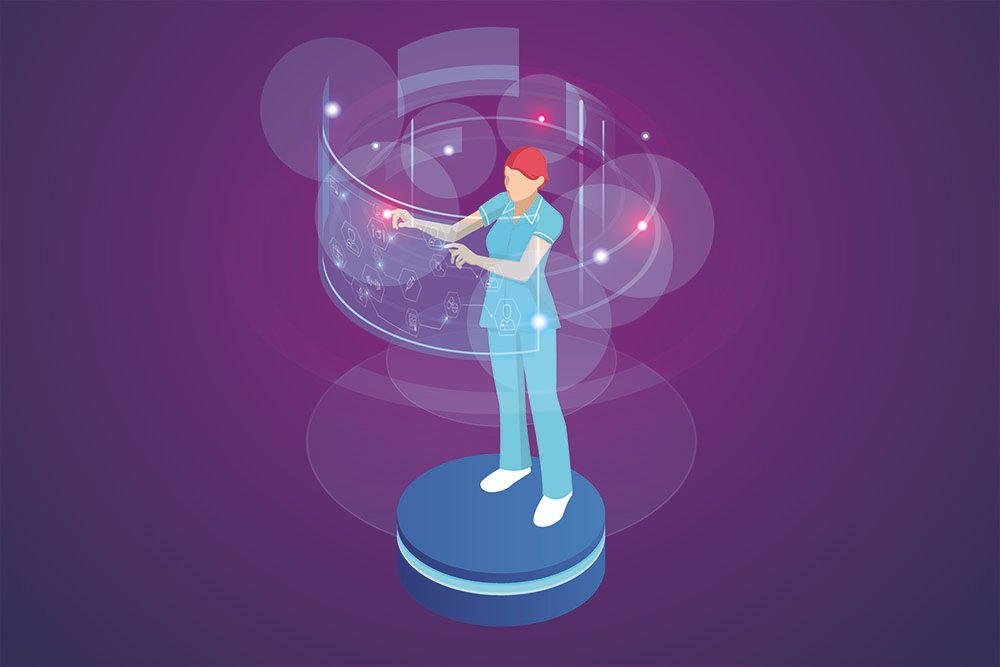Nurses, student nurses, patients and tech professionals are being asked for their views on digital technology skills, to establish a consensus on how it should feature on pre-registration courses.
Educators at Liverpool John Moores University, in partnership with Nursing Times and a panel of experts, are seeking to ensure nursing courses take into account advances in digital technology.
“This is an opportunity to shape a meaningful and grounded vision for how we teach, support, and empower nurses in the digital age”
Matthew Wynn
The overall aim is to better-prepare newly registered nursing staff for what they may encounter in practice, given the rapid acceleration of technology adoption across health and social care.
In order to canvass the views of nurses, students and other stakeholders, we have launched a survey to inform the consensus-building process and need you and your colleagues’ help to complete it.
Academics behind the initiative note that, while digital transformation in healthcare has accelerated rapidly, the nursing profession remains underprepared to engage confidently and ethically with it.
Despite calls for reform, they warn that digital capabilities in nursing education remain inconsistently defined, often borrowed from generic frameworks with limited theoretical or professional grounding.
Meanwhile, moving the NHS ‘from analogue to digital’ was one of three priorities highlighted by the Department of Health and Social Care shortly after the government won the 2024 general election.
As a result, Liverpool John Moores University has launched a project to help establish a consensus on what digital capability in nursing education really means, not just in theory, but in practice.
Led by senior lecturer in adult nursing Matthew Wynn, the process aims to establish a stakeholder-driven framework for embedding digital skills into education and provide a foundation for research.
Supporting the initiative are Fran Beadle, chief nursing information officer for digital health and care Wales, and England’s first chief nursing information officer Professor Natasha Phillips.
They are among a panel of expert stakeholders who are helping to advise on the project, which also includes researchers, patients and health technology representatives.
Mr Wynn said: “We have launched a project to help establish a consensus on what digital capability in nursing education really means, not just in theory, but in practice.
“Nurses deserve an education that reflects their unique role, knowledge base, and ethical commitments, and the best way to define this is through listening to those closest to the reality of care.
“We have conducted a rapid review of the literature, which has identified gaps in how digital capabilities are measured among nurses, and how this is implemented into education. We are now seeking wider input through a qualitative survey.
“This is an opportunity to shape a meaningful and grounded vision for how we teach, support, and empower nurses in the digital age,” said Mr Wynn.
“Whether you are a frontline nurse trying to make a clunky electronic record work for your patients, a student feeling under-prepared for the technological realities of practice, a patient navigating remote care, or a tech developer trying to design tools that actually support care delivery, we want to hear from you.”
He added: “It is a chance to make sure your voice is heard, and to contribute to shaping the future of nursing in a way that respects both its tradition and its transformation.”

